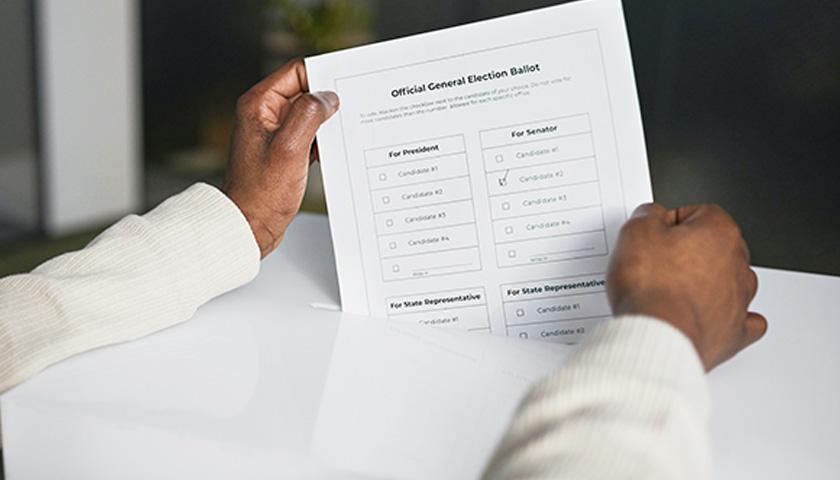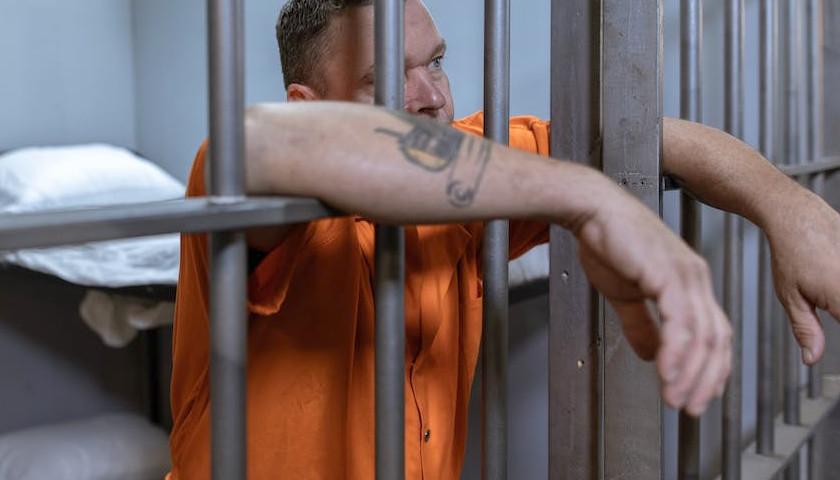by Hank Long
A trio of Minnesota residents, along with a conservative voters rights watchdog organization, have filed a lawsuit challenging the constitutionality of a new law that restores the right to vote for felons still on probation or parole.
The petitioners in the lawsuit include: the Minnesota Voters Alliance and Anoka County residents Mary Amlaw, Ken Wendling and Tim Kirk. They are being represented by the Upper Midwest Law Center.
Amlaw is a longtime Republican Party activist. Wendling ran for the Minnesota House of Representatives in 2020 as the Republican candidate for District 37A. He lost that election to DFL candidate Erin Koegel.
The lawsuit names Secretary of State Steve Simon, Anoka County elections official Tom Hunt, and Lino Lakes Minnesota Correctional Facility executive Shannon Reimann as respondents. It challenges the constitutionality of legislation passed in March and enacted June 1, which restores voting rights to those convicted of felonies who are no longer incarcerated but still serving their sentence via probation or parole.
Complaint leans on February state Supreme Court ruling
The plaintiffs — who filed their petition in Anoka County district court on Wednesday — argue the new statute “exceeds the authority granted to the state legislature under the Minnesota Constitution,” as concluded by the Minnesota Supreme Court in its February 2023 ruling in Schroeder v. Simon.
In that decision the Supreme Court upheld a lower court ruling and determined that the “plaintiffs have not offered sufficient evidence to prove that (the law regarding felon voting rights) violates the equal protection principle contained in the Minnesota Constitution.” The case came to the Supreme Court on appeal from St. Paul resident Jennifer Schroeder, who had sued the secretary of state arguing that existing law at the time unconstitutionally deprived her of the right to vote in Minnesota while she was no longer in prison but still serving probation for a series of drug-related convictions.
That Supreme Court ruling galvanized Democrats in the House and Senate to pass HF28 in March, which amended state statute to allow those convicted of felonies to have their voting rights restored upon release from incarceration.
Simon pushed for new law prior to court decision
Secretary of State Simon had said from the outset of the 2023 legislative session that passing HF28 was near the top of his office’s legislative agenda. Following the February Supreme Court ruling, Simon told media that while his office was constitutionally obligated to defend the law as it was written at the time, he supported passage of HF28.
Previously, state law only restored voting rights to felons upon completion of their probation or parole. The legislation received support from three Republicans. Gov. Tim Walz signed the legislation into law on March 3. Its June 1 enactment restored the right to vote for 50,000-plus Minnesotans currently serving probation or parole for a felony crime.
In the case filed this week challenging the new law, the Upper Midwest Law Center argues on behalf of the plaintiffs that the February 2023 Schroeder v. Simon ruling “states that restoration of civil rights occurs upon completion of the felony sentence.”
“The new law grants felons still under sentence, but on supervised release the ability to vote in Minnesota elections, directly contradicting constitutional law,” the center said in a press release announcing the lawsuit on Thursday.
Attorneys for the petitioners argue that new language in the statute is unconstitutional because it restores voting rights to felons before they’ve actually completed their sentence. They also argue that the secretary of state, Anoka County election officials and Department of Corrections do not have authority to provide notice to felons still serving a sentence, regardless of whether they are incarcerated, that they have a right to vote.
“Under the Minnesota Constitution, Article VII, section 1, those convicted of a felony crime may not vote ‘unless restored to civil rights,’” the complaint states. “That’s ‘civil rights,’ plural, meaning all civil rights that a non-felon possesses. The Constitution does not create legislative authority to restore the singular right to vote before all civil rights are restored to an individual convicted of a felony.”
The Upper Midwest Law Center, on behalf of the petitioners, “seeks to ensure Minnesota voting laws adhere to our constitution, which makes clear that all civil rights must be restored to those convicted of felonies before they are eligible to vote again,” said attorney James Dickey, a senior trial counsel for UMLC.
“Felons on supervised release, work release or probation do not meet these requirements,” Dickey added. “If the legislature wants to fundamentally change our constitution, they have an avenue to do that and can put a constitutional amendment before the people of Minnesota.”
Representatives for the Minnesota Voters Alliance said while they believe in giving a “second chance” for those convicted of felonies, that “does not happen unless they complete their entire sentence.”
“When [a felon’s] debt has been repaid, and only in full, the last right they have restored is the right to vote,” said Andy Cilek, president of the Minnesota Voters Alliance. “Felons on supervised release, probation, or work release have not been fully restored to their civil rights, and therefore, are not legally able to participate in our electoral process.”
The Secretary of State’s Office said in an emailed statement that it cannot comment on the merits of the litigation but “will continue to move forward with implementing the law as approved by the legislature and the Governor.”
– – –
Hank Long is a journalism and communications professional whose writing career includes coverage of the Minnesota legislature, city and county governments and the commercial real estate industry. Hank received his undergraduate degree at the University of Minnesota, where he studied journalism, and his law degree at the University of St. Thomas. The Minnesota native lives in the Twin Cities with his wife and four children. His dream is to be around when the Vikings win the Super Bowl.
Photo “Ballot” by Edmond Dantès.





